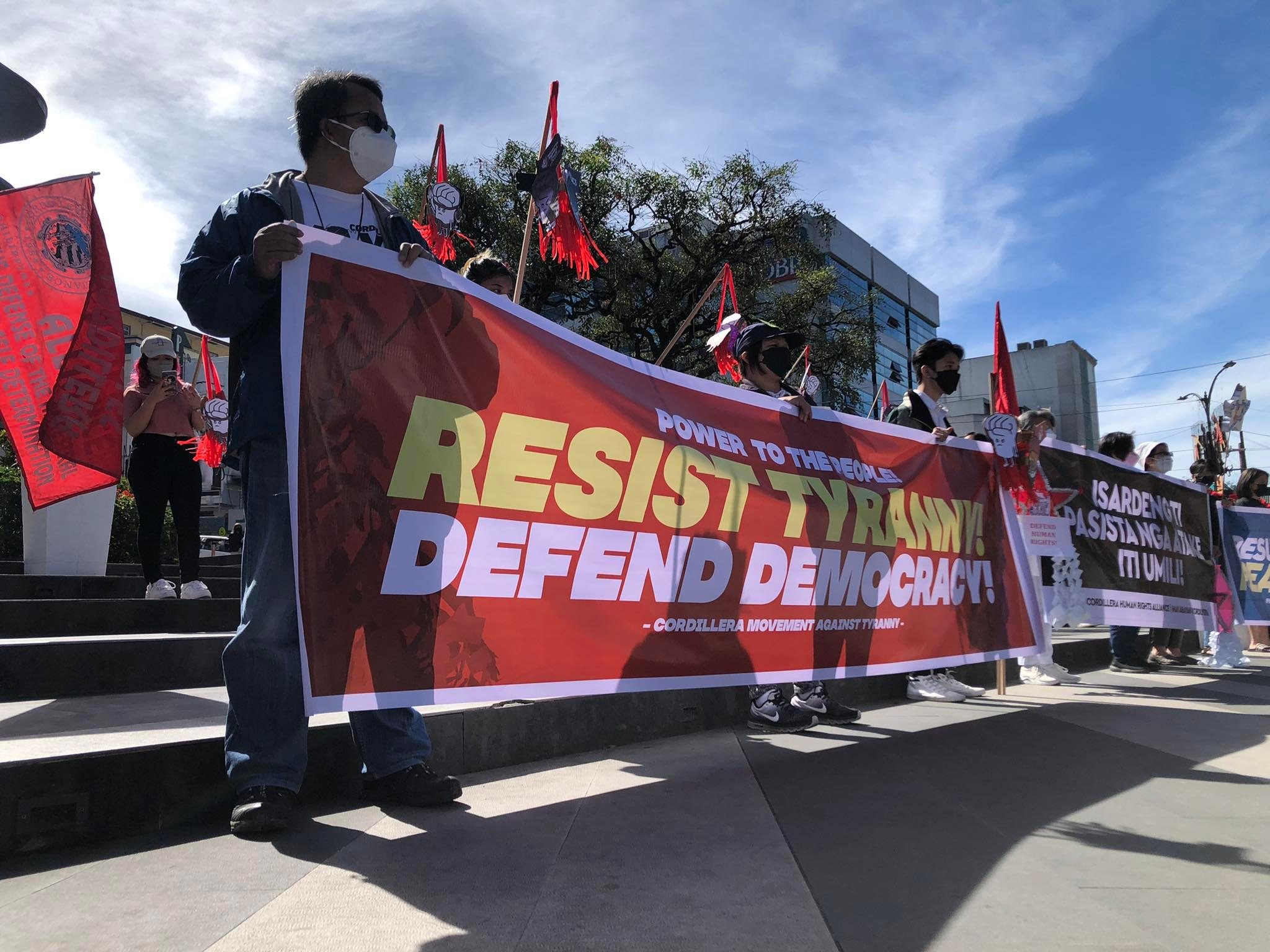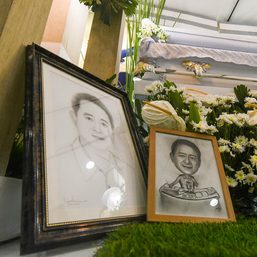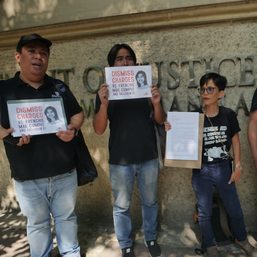SUMMARY
This is AI generated summarization, which may have errors. For context, always refer to the full article.

PAMPANGA, Philippines – Media workers in Baguio and Benguet on Tuesday, January 18, demanded a halt to the red-tagging of colleagues and activists after Baguio Correspondents and Broadcasters Club Inc. (BCBC) president Aldwin Quitasol received a summons to an anti-insurgency “dialogue”.
The BCBC and the National Union of Journalists Baguio-Benguet (NUJP-BB) chapter released a joint statement, warning against renewed efforts by the Philippine National Police (PNP) to implement a Tokhang-like program in the area.
“The measure aims to harass and intimidate activists. This includes members of the media, which state authorities presume [to have] links with the Communist Party of the Philippines (CPP) and the New People’s Army (NPA),” the statement said.
It also slammed the Cordillera Regional Peace and Order Council, saying its “effort to make it acceptable, does not make the program less deadly than Tokhang nor able to hide its intention to red-tag individuals.”
The media outcry followed a call on January 17 by the international rights watchdog Human Rights Watch (HRW) to end the red-tagging of activists in the country.
“Red-tagging is a pernicious practice that targets people who often end up being harassed or even killed,” said HRW senior Philippines researcher Carlos Conde. “Red-tagging is rapidly shrinking the space for peaceful activism in the Philippines,” he added.
HRW recently released a video featuring harassment cases involving human rights group Karapatan secretary general Cristina Palabay, Mylene Cabalona of the BPO Industry Employee’s Network, and Mindanao Gold Star Daily editor Cong Corrales.
“Red-tagging is a key component of the Philippine government’s abusive campaign against critical activists, journalists, and politicians,” Conde said.
Quitasol said he received a letter from the Baguio police and the army to attend another dialogue as part of the police’s and military’s Community Support Program White Area Operation (CSP-WAO) – a component of the government’s Oplan Kapayapaan targeting suspected sympathizers of communist rebels in conflict-affected areas.
Quitasol said he already had a dialogue with them in 2021. A Baguio regional court also ordered a halt to the practice in the same year.
The “Dumanon Makitongtong” (Seek and Talk) dialogue, Quitasol said, is being used against journalists to get information on the CPP-NPA, said Quitasol.
Patterned after President Rodrigo Duterte’s drug war program, Oplan Tokhang, the strategy enjoins law enforcers to visit and talk to suspected communist rebel sympathizers, urge them to withdraw their support, and work with the government.
Questions on coverage
“Tinanong sa akin ‘yung mga coverages namin kung nakakatanggap kami ng sulat mula sa NPA, mga statements mula sa CPP-NPA, kung paano kami nakakatanggap,” the journalist said. (They asked me about coverage, if I had received messages or statements from the CPP-NPA, and how I got these.)
Quitasol said he told authorities that journalists’ email accounts are usually public because they use these for news-gathering. “However, this does not make us part of the communist-led armed rebellion,” he pointed out, adding that even leftists should not be lumped together with armed rebel groups.
The statement also noted the Commission on Human Rights Cordillera Administrative Region’s June 2021 resolution on the red-tagging case filed by Northern Dispatch. The government body called red-tagging a human rights violation and urged the police and military to take complaints seriously. It also called on local governments to take a stand against the practice. – Rappler.com
Joann Manabat and Sherwin de Vera are Luzon-based journalists and awardees of the Aries Rufo Journalism Fellowship.
Add a comment
How does this make you feel?








![[OPINION] You don’t always need a journalism degree to be a journalist](https://www.rappler.com/tachyon/2024/06/jed-harme-fellowship-essay-june-19-2024.jpg?resize=257%2C257&crop=287px%2C0px%2C720px%2C720px)





![[Newspoint] A little walk-back](https://www.rappler.com/tachyon/2024/05/tl-a-little-walk-back-05182024.jpg?resize=257%2C257&crop=215px%2C0px%2C720px%2C720px)
There are no comments yet. Add your comment to start the conversation.